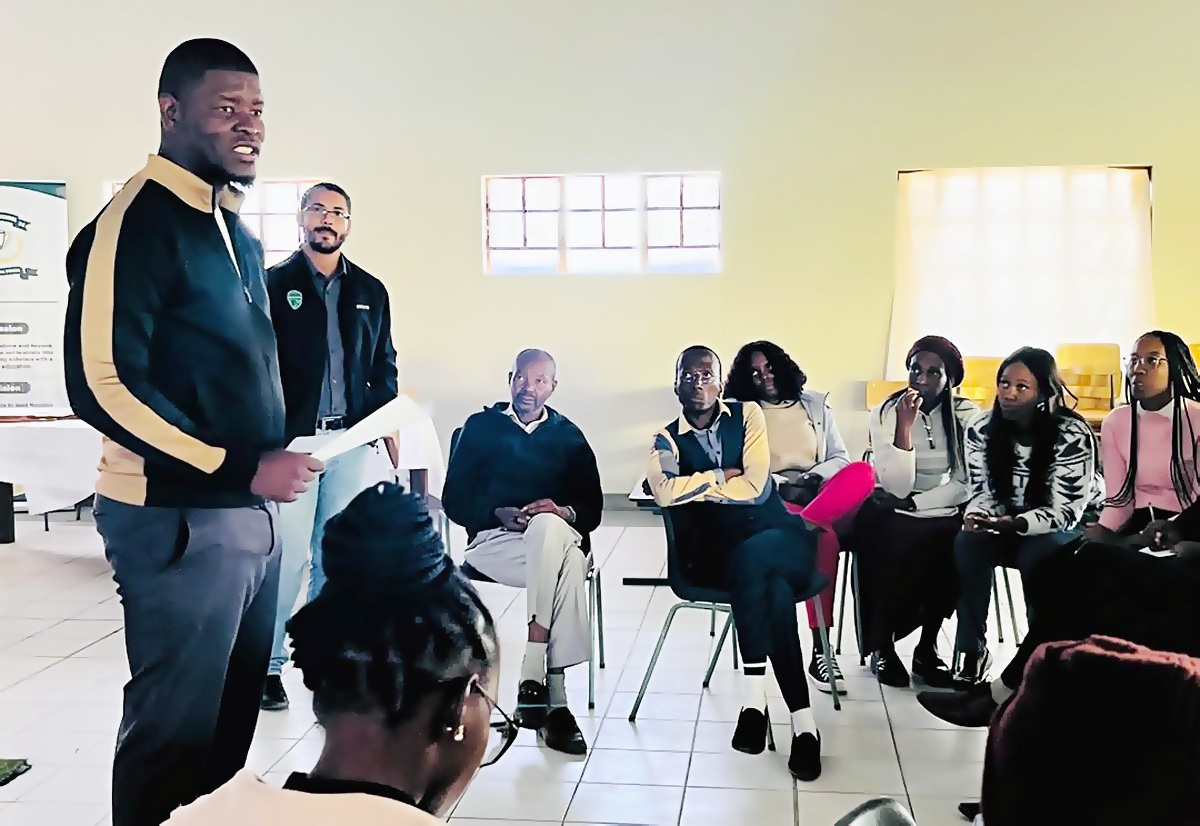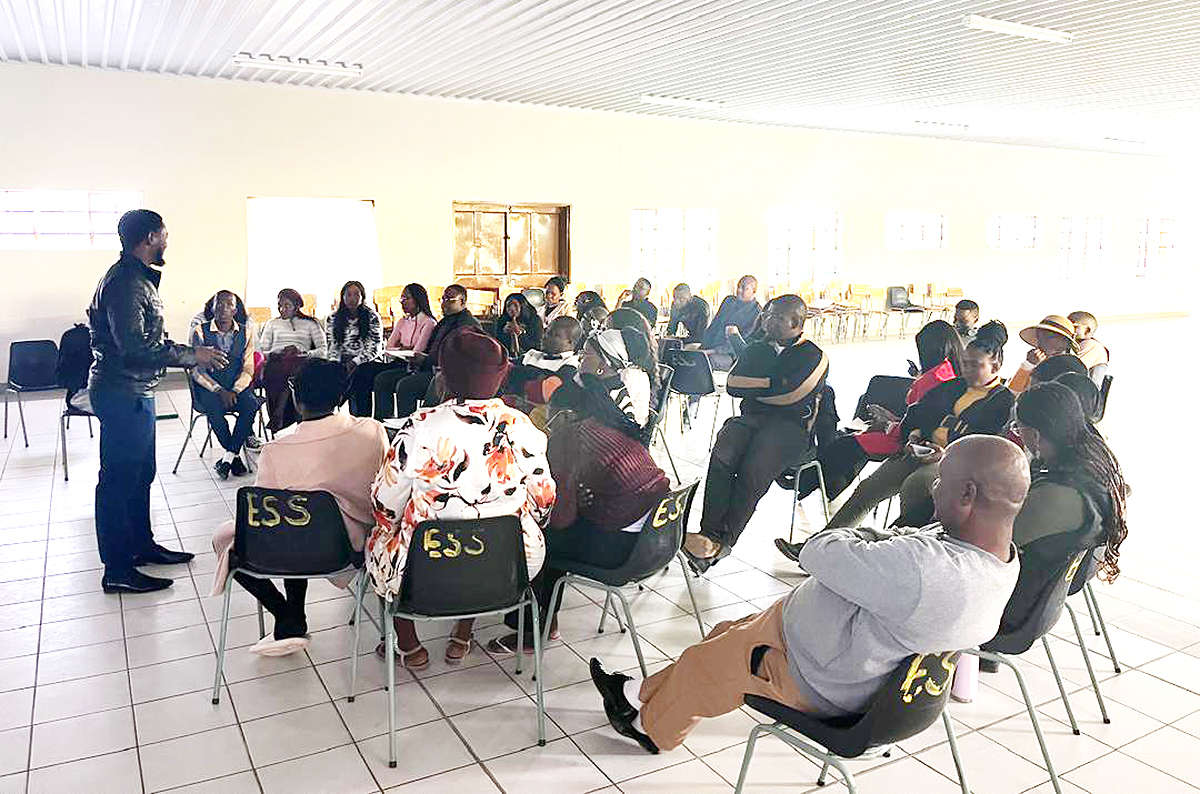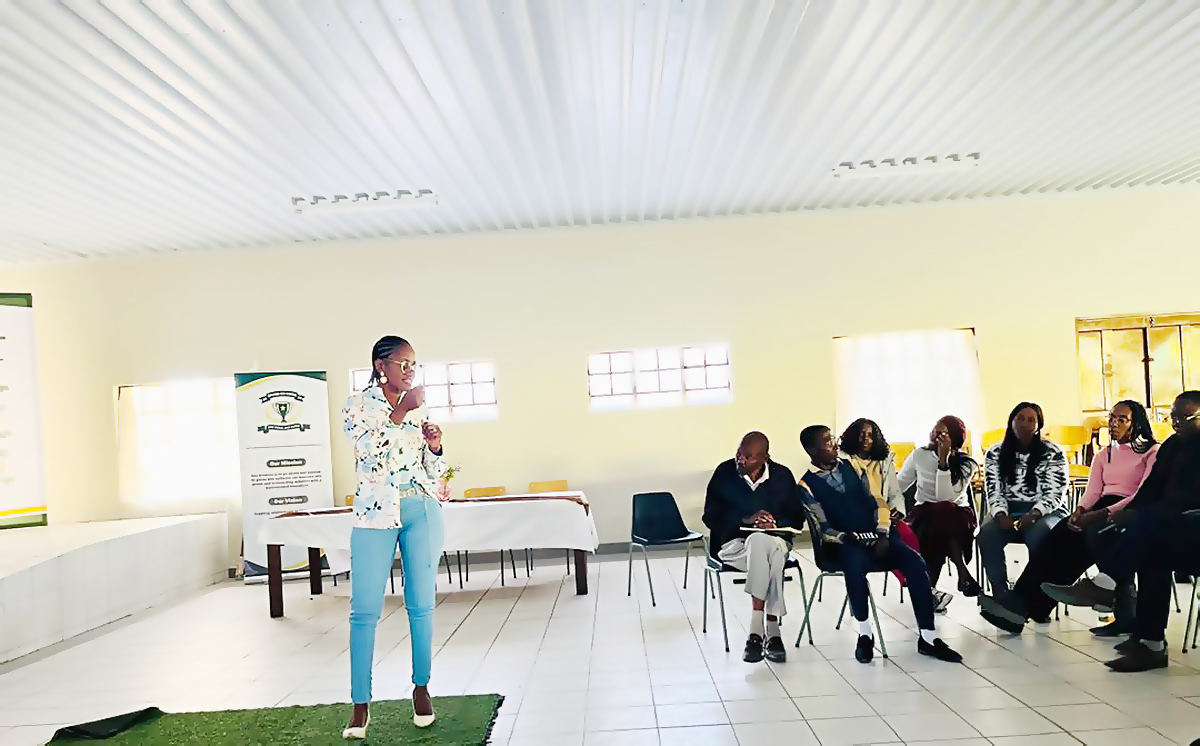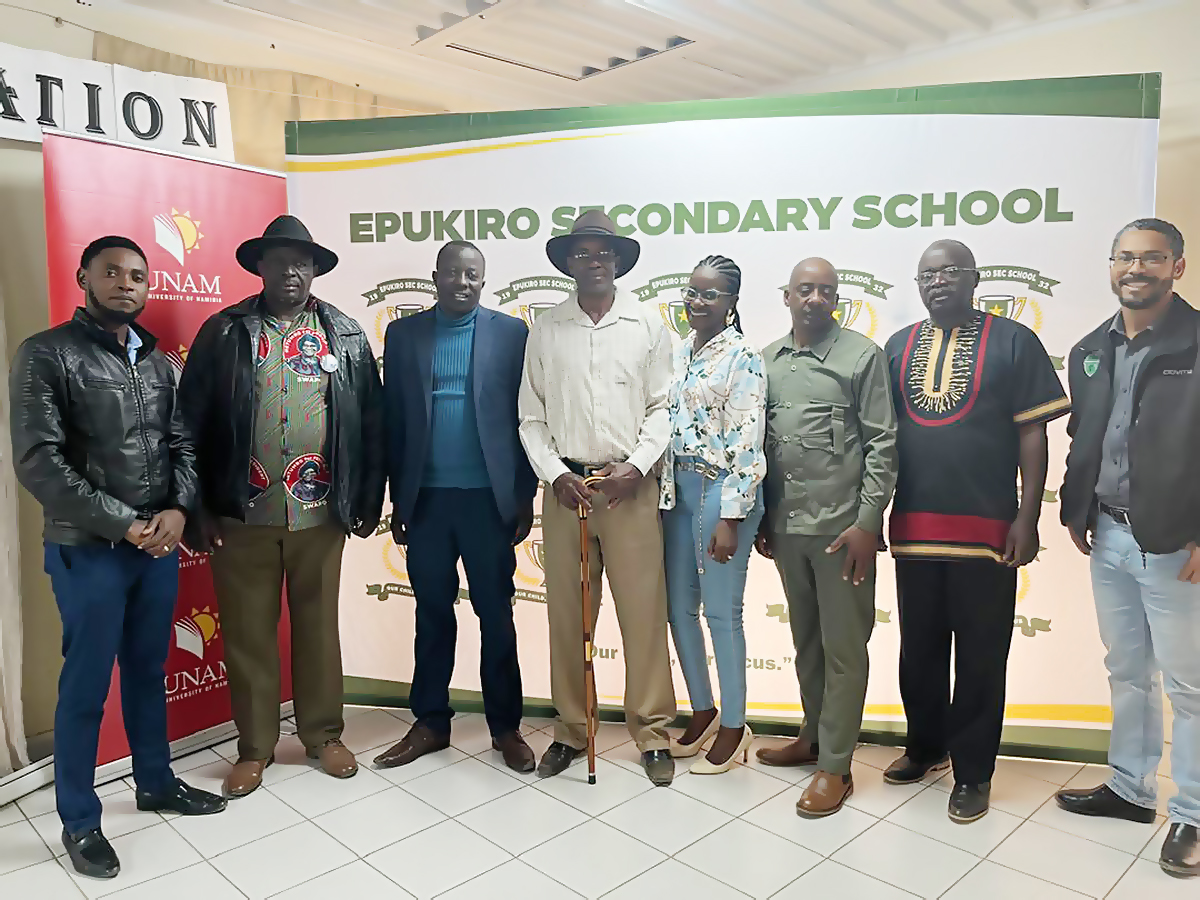Epukiro Secondary School is located at Epukiro, a cluster of small settlements, 120km northeast of Gobabis in the Omaheke region. The school was recognised as the Top Performing Public School in Omaheke, the Advanced Subsidiary (AS) levels for the 2024 examination.
To build on this success, staff members from the University of Namibia (UNAM), the Department of Higher Education & Lifelong Learning, facilitated transformational leadership and motivation workshops to teachers, non-teaching staff and learners from 06 – 09 May 2025.

These dynamic sessions focused on critical themes such as, teamwork; aligning activities with the mission and vision of the school; transformational leadership; effective communication skills; discipline; ethics and integrity; conflict resolution; planning and goal setting; motivation; and stress management.
The workshops were aimed at encouraging staff and learners. The school has set high targets for themselves and are working tirelessly to realise their goals.
The group from UNAM consisted of Mr Leonard Amunime, Ms Charlene Kaereho, Dr Nchindo Mbukusa and Professor Wesley Pieters.
The group was welcomed into the community by the School Principal, Mr Tjivahe Uanivi and thanked for all their efforts.

Epukiro Constituency Councillor, Mr Packy Pakarae as part of his welcoming remarks, reminded the school about the interdependency of all stakeholders including the teachers, support staff, learners, parents and community members. “Reaching the top step is the easier part, retaining that top step is more challenging”, Mr Pakarae emphasised.

Ms Kaereho expressed with pride that, “it is a privilege to contribute to the future leaders and the Namibian nation. The learners are eager to learn and implement some of the lessons learned”.
“We would not be able to execute such initiatives without the support of the School of Education management at UNAM,” she gratefully adds.

Looking ahead, Epukiro Secondary School hopes that this initiative becomes a frequent engagement, encouraging other stakeholders to invest in the future of the learners. The success of education depends on the active involvement of the entire community, emphasising that education is a shared responsibility beyond the classroom walls.





